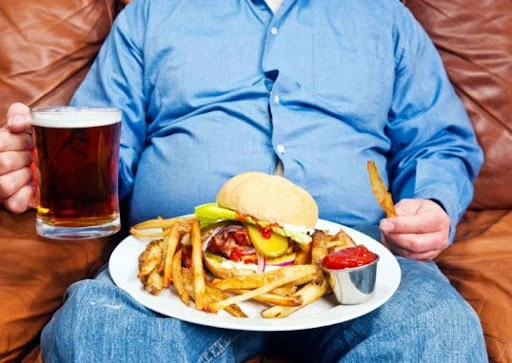
Do you know what you are eating, and whether it is healthy or destructive to your health? In today’s modern lifestyle, fast food has become a daily luxury for many. Some people depend on fast food due to their hectic routines, attracted to its delicious taste and affordability.
However, it’s now proved that fast food is neither nutritious nor healthy; in fact, it can harm your health. Therefore, it’s essential to keep an eye on the nutritional details of fast food, By doing this you will learn the hidden dangers of using these items, which can be even more dangerous than you might have imagined. This trend of fast food intake is not limited to Americans but has rapidly spread worldwide. In this article, you will find some hidden facts about the harmful effects of fast food on human health. So, let’s get started!
Risks Associated with Fast Food
Fast food is a heavy cousin as high in fat and calorie content. While the recommended daily intake for Americans is no more than sixty-five grams of fat and a daily calorie limit of two thousand (depending on age and activity level), consuming fast food often leads to exceeding these recommended levels by as much as 30% or more.
Fast foods are considered “silent killers” because they lack nutritional value and can affect human health seriously. Many everyday foods are overloaded with fats, making them possible silent killers. Fried chicken, sausages, chicken nuggets, and similar items have high-calorie content which leads to obesity, a major factor in heart disease.
Even healthy foods like vegetables can become unhealthful choices when prepared in an unhealthy manner, such as cooking them in butter or deep frying them. Awareness of fast food’s contribution to obesity is crucial, as it remains a significant public health concern with little action taken to address the issue. Obesity is linked to various chronic conditions, including diabetes, heart disease, and certain cancers.

Some individuals, occasionally indulge in fast food but strive to limit the intake of products like Coca-Cola, crisps, and hamburgers. It’s essential to recognize the reality that fast food can be pleasing, especially for students and those with active lifestyles. Still, it’s also vital to encourage ourselves and others to reduce fast food consumption in favor of homemade meals.
Junk food has several damaging effects on health, such as high blood pressure and increased risk of sudden cardiac arrest. The extreme sugar content in junk food can lead to diabetes and strain the pancreas’s insulin production. Fast food’s contribution to obesity raises the risk of heart disease.
Fast food can also weaken your energy levels, making it challenging to carry out daily tasks. However, the good news is that eating a healthy meal can help your body return to its natural state, indicating to your brain to control hunger and burn fat. In contrast, fast foods send the opposite message, increasing cravings.
Say No to Fast Food Completely???
It’s important to realize that junk food addiction is not completely a matter of personal choice. The ingredients in fast food can have an addictive effect, making it difficult for individuals to resist the fine salt and sugar content.
Now there is a ray of hope with the concerns about fast food. Not all fast food options are equally dangerous to your health. In many cases, some fast food items use minimal oil and are relatively less harmful. Examples of healthier fast food choices include chicken bowls, quinoa bowls, protein bowls, grilled sandwiches, tandoori chicken or paneer, and wraps made with whole wheat or mixed-grain bread.
However, it’s important to exercise and remember that this doesn’t give you a free pass to indulge in fast food excessively. Moderateness is key in all aspects of your diet, including when choosing these healthier fast food alternatives.
Breaking the Fast Food Addiction: Strategies to Quit

Here are the strategies for breaking free from the fast food addiction:
- Pay close attention to the moments when your cravings for fast food kick in. Understanding what activates these cravings can help you address them effectively.
- Maintaining a balanced diet doesn’t mean denying yourself the foods you love. Instead of fast food, consider finding healthier choices that you truly enjoy.
- Eliminate sodas, sugar-filled beverages, and artificial sweeteners from your diet. These can contribute to your sugar addiction.
- Find healthier ways to cope with stress, as stress can often initiate unhealthy food cravings.
- Explore the use of supplements that may help control cravings.
- Plan your meals carefully and stick to your plan. Packing your own lunch for work can prevent the attraction of ordering unhealthy options.
- Prioritize foods rich in protein, fiber, and water to keep yourself feeling full. If you crave snacks between meals or while watching a movie, choose nuts, seeds, yogurt with fruits, or popcorn.
By applying all these steps in your life you will definitely be able to be free from fast food addiction and will live a healthy life.





